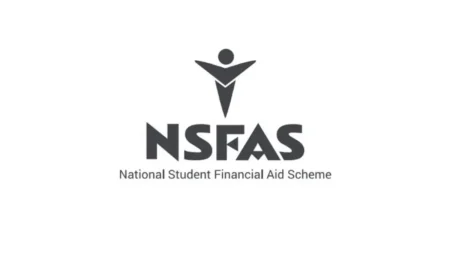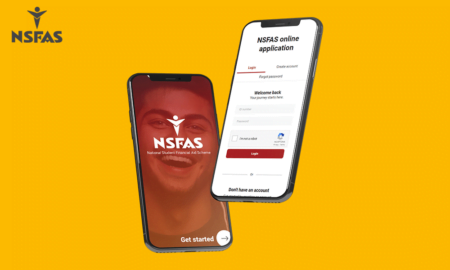Each year, thousands of South African students rely on the National Student Financial Aid Scheme (NSFAS) to cover their tuition, books, meals, and accommodation. But for many, the process doesn’t go smoothly, particularly when it comes to proof of residence. Missing, invalid, or unclear proof of address documents often lead to delayed payments, rejected claims, or even suspended allowances.
This guide is written with you, the South African student in mind. Whether you’re applying for NSFAS funding for 2026 or you’re already funded and submitting your accommodation documents, this article will help you understand exactly what counts as valid proof of residence, how to get it, and how to avoid the common mistakes that delay payments.
1. Understanding NSFAS Accommodation Verification
NSFAS funds both university and TVET college students who meet certain academic and financial eligibility criteria. Part of this process involves verifying where you live — especially if you’re applying for the accommodation allowance.
Accommodation verification ensures that:
- You are actually living in an approved residence or rented space near your campus.
- NSFAS funds are not being misused for fake leases or unoccupied rooms.
- Payments go to legitimate landlords, institutions, or accredited residences.
Because accommodation funding involves large monthly payments, NSFAS requires strong evidence that your housing arrangement is real and compliant. That’s why providing a valid proof of residence is a non-negotiable requirement.
2. Why Proof of Residence Matters
Proof of residence helps NSFAS confirm:
- Where you live during your studies — whether it’s on campus, off campus, or at home.
- Who your landlord or housing provider is — for private accommodation.
- The authenticity of your accommodation claim — preventing double claims and fraud.
- Your eligibility for transport vs accommodation allowance — NSFAS funds either transport or accommodation, not both.
If NSFAS cannot verify your residence, they cannot release your housing allowance. This affects:
- Monthly living and transport allowances
- Direct payments to landlords or student residences
- Funding continuation for the semester or academic year
For this reason, your proof of residence must be recent, official, and verifiable.
3. What Counts as Valid Proof of Residence for NSFAS (2026)
NSFAS accepts several types of documents as proof of residence, but each must meet strict conditions. Below is a list of approved document types and what they must include to be valid.
3.1. Municipal Utility Bill
A municipal bill (for water, electricity, or rates) is one of the most trusted forms of proof of residence.
Requirements:
- Must be issued within the last 3 months
- Must clearly show the residential address
- Can be in the parent’s or guardian’s name, provided you submit an affidavit confirming that you live at that address
Tip: If you live at home, use your parent’s or guardian’s municipal bill plus an affidavit from them stating you live there.
3.2. Lease Agreement (for Private Accommodation)
A lease agreement is essential for students renting off-campus or in private residences.
Requirements:
- Must be signed by both the student and landlord
- Must include:
- The full residential address
- Monthly rental amount
- Lease start and end dates
- Landlord’s contact details
- Should be printed on official letterhead if the accommodation is managed by a residence or company
Note: Handwritten or unsigned agreements are often rejected.
3.3. Official Residence Confirmation Letter
Students staying in university or TVET residences should submit a residence confirmation letter issued by the institution.
Requirements:
- Must be stamped and signed by the residence office
- Must include:
- Student’s name and student number
- Residence name and address
- Accommodation period (e.g., January–November 2026)
- Institutional letterhead
Important: Residence offers or acceptance letters without a signature or stamp are not sufficient as proof of residence.
3.4. Affidavit Confirming Residence
If you live in informal housing or rural areas where no utility bills exist, you can provide an affidavit as proof of residence.
Requirements:
- Must be signed and stamped by a Commissioner of Oaths
- Must include:
- Student’s full name and ID number
- Full address where you reside
- Name and ID number of the person you live with
- Relationship to that person (e.g., aunt, guardian)
- Statement confirming that you live there
Tip: The person you live with should also attach their own proof of address (such as a bill or official letter) to support your affidavit.
3.5. Letter from a Local Councilor or Tribal Authority
For students living in rural or traditional areas, a letter from the local councillor or traditional leader can serve as valid proof.
Requirements:
- Must be officially signed and stamped
- Must include your full name, ID number, and the physical address of the residence
- Should specify the duration of your stay in that area
Note: This document is particularly important for rural students who cannot produce formal utility bills.
3.6. Bank Statement or Official Government Letter
A bank statement, SASSA letter, or any official letter from a government department may also serve as proof of residence if it shows your physical address.
Requirements:
- Must be less than 3 months old
- Must show both your name and residential address
- Must be officially issued, not handwritten or altered
4. What Documents NSFAS Rejects — and Why
Many students face delays because their proof of residence is rejected. Understanding why NSFAS rejects documents helps you avoid unnecessary frustration.
4.1. NSFAS Common Rejection Reasons
| Rejection Reason | Example | How to Fix It |
|---|---|---|
| Missing address | Affidavit doesn’t include a physical address | Add full address and get it re-signed |
| Outdated document | Bill older than 3 months | Submit a recent version |
| Unsigned or unstamped | Lease or letter missing signature | Request official stamp/signature |
| Address mismatch | Proof shows different surname or location | Attach affidavit explaining relationship |
| Altered or unclear document | Scanned or edited files | Submit original PDF or clear photo |
| Incomplete lease | Missing rental dates or landlord details | Ask landlord to revise the lease |
Tip: NSFAS does not accept WhatsApp screenshots, handwritten notes, or non-verifiable online listings as proof of residence.
5. How to Prepare and Submit Your Proof of Residence
Follow this step-by-step process to ensure your document submission is valid and ready for NSFAS verification.
Step 1: Identify Your Living Situation
Decide which category you fall under:
- On-campus residence
- Private accredited accommodation
- Renting privately
- Living at home
- Living in rural/informal housing
This determines which proof of residence document you need.
Step 2: Obtain the Right Documentation
- University/TVET residence: Request a signed and stamped confirmation letter.
- Private accommodation: Get a signed lease and landlord ID copy.
- Home: Use parent’s utility bill plus affidavit.
- Rural/informal area: Get a councillor or tribal letter plus affidavit.
Step 3: Double-Check All Details
Before submitting, ensure:
- The address is clearly written and matches your NSFAS details.
- The document is dated within 3 months.
- All signatures and stamps are visible.
- You have supporting documents (e.g., landlord ID, lease, affidavit).
Step 4: Scan or Photograph Clearly
- Use good lighting.
- Capture the entire document, including signatures and stamps.
- Save as PDF or JPEG format — avoid blurry or cut-off edges.
Step 5: Upload via Correct NSFAS Channel
You can submit documents through:
- myNSFAS portal (for online submissions)
- Institutional Financial Aid Office (for verification)
- Email submission if requested by your institution or NSFAS
Always confirm which method applies to your situation.
Step 6: Keep Copies of Everything
Always keep a copy of:
- The proof of residence
- Lease agreement
- Any affidavits or supporting letters
These will help if NSFAS requests re-verification or if payments are delayed.
6. Special Situations & Exceptions
6.1. Students Living in Rural or Informal Areas
If you live in a village or township without formal municipal bills, use:
- A letter from your local councillor or traditional leader
- An affidavit from your guardian
- Any official document showing your area or school address
Combine these for stronger evidence.
6.2. Students Living with Relatives
If you stay with an aunt, uncle, or older sibling:
- Use their utility bill or lease
- Include an affidavit confirming you live with them
- Attach their ID copy for verification
6.3. Students in Shared Accommodation
If multiple students share a flat or house:
- Each student must submit a copy of the shared lease
- Include a letter from the landlord listing all residents and the total rent
- If your name isn’t on the lease, add an affidavit from the primary tenant
6.4. Students Awaiting Permanent Housing
If you’re temporarily staying somewhere while awaiting official residence placement:
- Get a temporary proof of residence letter from the housing office
- Update NSFAS once your final accommodation is confirmed
7. Common Mistakes and How to Avoid Them
| Mistake | Why It’s a Problem | How to Fix It |
|---|---|---|
| Submitting expired documents | NSFAS requires current proof | Use documents issued within 3 months |
| Using wrong file format | System rejects unreadable uploads | Save as PDF or JPEG |
| Address mismatch with NSFAS profile | Causes verification delay | Update your address on myNSFAS |
| Forgetting signatures/stamps | Invalidates official letters | Request stamp/signature before upload |
| Submitting selfies or screenshots | Not valid proof | Use official scanned or original documents |
| Not keeping copies | Hard to appeal | Always save backups |
8. NSFAS Housing Compliance Tips for 2026
- Start early. Don’t wait for registration week — secure and document your accommodation by December 2025.
- Use verified housing. Check if your residence or landlord is NSFAS-accredited before signing a lease.
- Stay consistent. Use the same address across all your NSFAS documents.
- Renew annually. Even returning students must resubmit updated proof each year.
- Follow up regularly. Use your myNSFAS account to check document status.
- Communicate with financial aid officers. They can confirm if your submission meets NSFAS standards.
9. What Happens If NSFAS Rejects Your Proof of Residence
If NSFAS rejects your document:
- You’ll receive a notification through your myNSFAS account or via email.
- Read the reason carefully — NSFAS usually specifies whether the issue is missing info, unclear document, or invalid format.
- Correct and resubmit promptly to avoid funding delays.
- If needed, visit your campus financial aid office for assistance.
Repeated non-compliance can lead to:
- Delayed accommodation allowance
- Suspension of payments
- Temporary funding freeze
Also check:
Your proof of residence might seem like a small part of the NSFAS process — but it’s one of the most important. A simple error like an outdated bill or an unsigned lease can delay your entire funding cycle.
By understanding what NSFAS accepts and preparing your documents correctly, you can:
- Avoid unnecessary stress
- Receive your accommodation allowance on time
- Stay fully compliant with 2026 NSFAS accommodation rules
Read more: NSFAS App Not Working? 10 Common Issues and How to Fix Them
Frequently Asked Questions:
1. Can I use a digital or scanned lease agreement for NSFAS, or must it be the original printed version?
You can submit a scanned or digital version of your lease agreement, as long as it is clear, complete, and includes visible signatures and stamps. NSFAS does not require physical originals, but the copy must be legible and unedited.
2. What should I do if my landlord doesn’t have a company letterhead or official stamp?
If your landlord is a private individual, they can still issue a lease agreement without a letterhead — but they must include their full name, contact details, ID number, and signature. You may also attach a copy of their ID to verify their identity.
3. Does NSFAS accept proof of residence in another person’s name if I’m renting a room in their home?
Yes, NSFAS can accept proof of residence in someone else’s name if you attach an affidavit confirming that you rent a room at that address, along with a copy of the person’s ID and their bill or lease agreement.
4. How recent must my proof of residence be when submitting it to NSFAS?
All proof of residence documents must be issued within the last three months before submission. Older documents, even if valid, are likely to be rejected for verification purposes.
5. Can I use a statement or letter from a private student accommodation platform (like DigsConnect or StudentHub)?
Not on its own. NSFAS requires documentation directly from the accommodation provider or landlord. However, if your accommodation is booked through a platform, you can attach the confirmation letter from the platform along with your signed lease.
6. What happens if my accommodation provider refuses to sign or stamp my confirmation letter?
If your landlord or residence manager refuses to sign or stamp your confirmation letter, NSFAS cannot verify your residence. You should request a replacement or contact your institution’s housing office for assistance — unsigned documents are not accepted.
7. Can a student use a post office box (P.O. Box) as a proof of address?
No. NSFAS only accepts documents that show a physical residential address — not postal addresses. Ensure your proof clearly shows where you live, not where you receive mail.
8. Do I need to resubmit proof of residence if I change accommodation during the academic year?
Yes. If you move to a new residence, you must update your proof of residence immediately. NSFAS uses this information to determine where to send your housing allowance, and delays may occur if you don’t update it promptly.
9. Will NSFAS verify my accommodation with the landlord or institution directly?
Yes. NSFAS often performs spot verifications with landlords, residence managers, or institutions to confirm that students actually live there. Providing false or unverifiable details may lead to suspension or repayment of allowances.
10. Can I combine different documents (e.g., lease agreement and municipal bill) to strengthen my proof of residence?
Absolutely. In fact, providing multiple supporting documents can help speed up verification. For example, you can attach your lease, your landlord’s utility bill, and an affidavit confirming your stay — especially if you live in shared or informal accommodation.
Quick Checklist: NSFAS Proof of Residence Requirements
- Dated within 3 months
- Clearly shows your physical address
- Signed and stamped (where applicable)
- Matches your NSFAS application details
- Supported by affidavit (if not in your name)
- Scanned clearly and submitted through official channels
Read more: NSFAS 2026 Applications Supporting Documents
Valid proof of residence is essential for NSFAS accommodation verification. Whether you live in a residence, rent privately, or stay at home, you must provide official, recent, and verifiable documentation. Understanding these requirements not only prevents delays but also strengthens the integrity of the NSFAS system — ensuring that genuine students get the support they deserve.
If you’re applying for NSFAS in 2026, start gathering your accommodation documents early. Preparation is the best way to stay funded, stay compliant, and stay focused on what matters most — your education.










